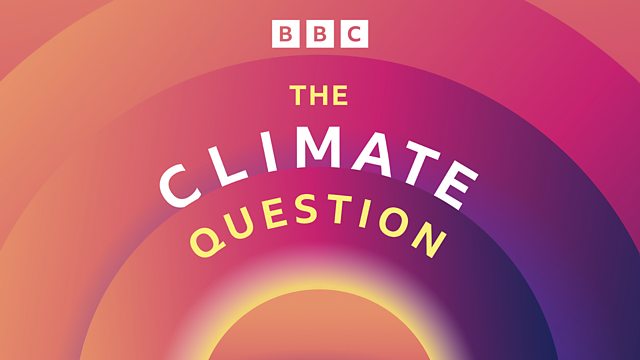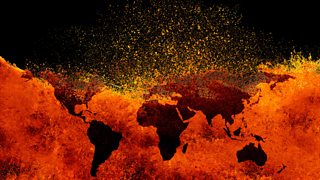Why can't we stop gas flaring?
Flares around the world are emitting toxic gasses that damage the climate and human health. What will it take to end this practice?
There are thought to be over 10,000 gas flares around the world that contribute to global warming by emitting tonnes of carbon dioxide and methane.
Flared gas is a by-product of oil extraction and is frequently used as a method of eliminating unwanted gasses in countries such as Albania, Algeria, Libya, Iraq, Russia and Nigeria.
Yet, year after year deadlines set to stop the practice are missed.
The oil industry says better infrastructure is needed to stop flaring and some of the world’s largest producers of oil have committed to ending flaring by 2030. What will it take for that to happen?
Presenters Neal Razzell and Kate Lamble are joined by:
BjΓΈrn Otto Sverdrup, chair, Oil and Gas Climate Initiative
Mark Davis, CEO of Capterio.
Sharon Wilson, senior field advocate, Earthworks
Producer: Darin Graham
Reporter: Fyneface Dumnamene
Series producer: Rosamund Jones
Editor: Emma Rippon
Sound engineer: Tom Brignell
Last on
More episodes
Previous
Next
Broadcasts
- Mon 11 Oct 2021 01:32GMTΒι¶ΉΤΌΕΔ World Service
- Mon 11 Oct 2021 08:06GMTΒι¶ΉΤΌΕΔ World Service
- Mon 11 Oct 2021 12:32GMTΒι¶ΉΤΌΕΔ World Service East and Southern Africa, South Asia, West and Central Africa & East Asia only
- Mon 11 Oct 2021 19:06GMTΒι¶ΉΤΌΕΔ World Service except East and Southern Africa & West and Central Africa
Featured in...
![]()
Climate change: How it is affecting lives and the fight for change—Βι¶ΉΤΌΕΔ World Service special collections
The effects of climate change are destroying lives, environments and livelihoods
Podcast
-
![]()
The Climate Question
Why we find it so hard to save our own planet, and how we might change that.



